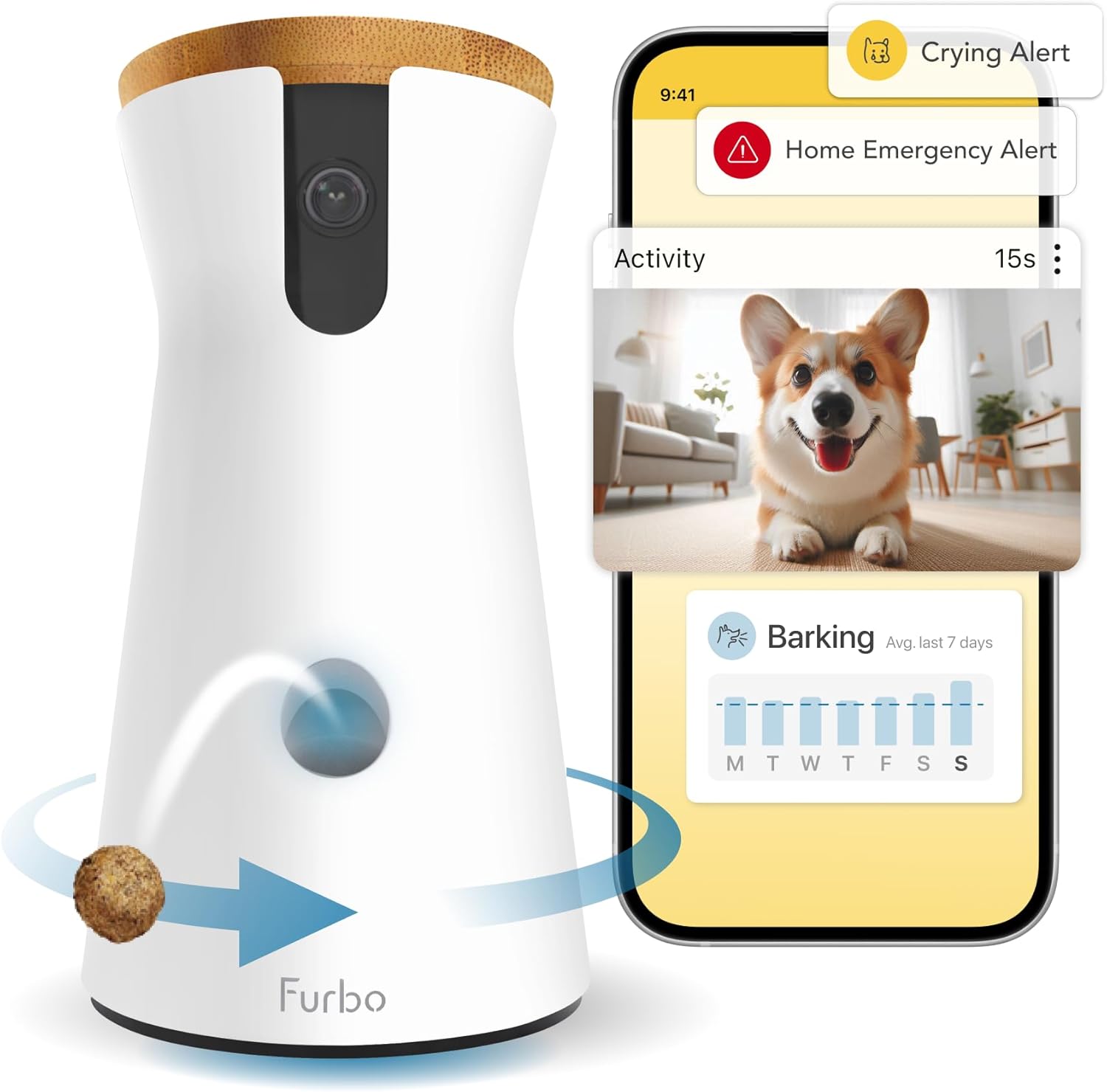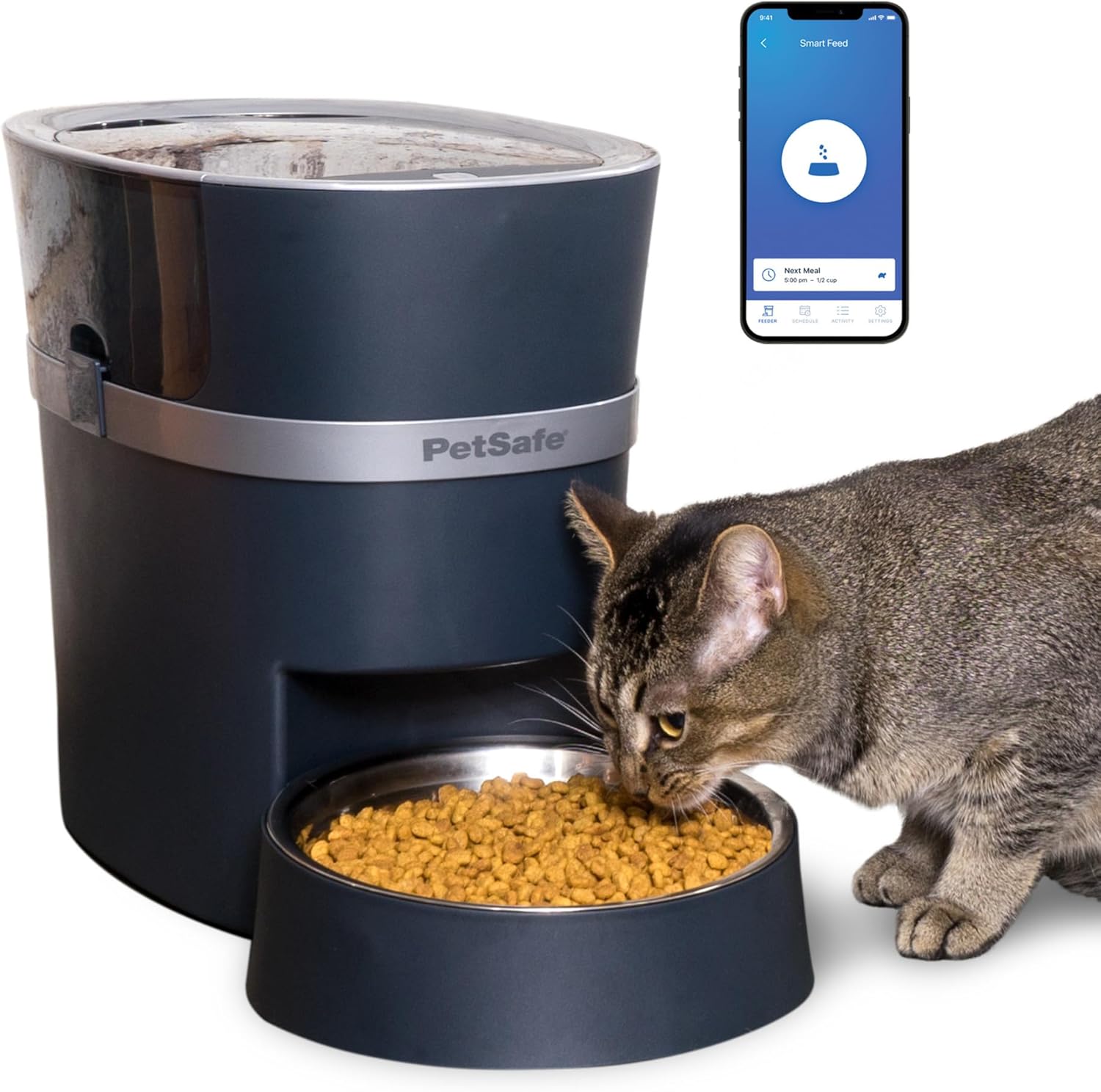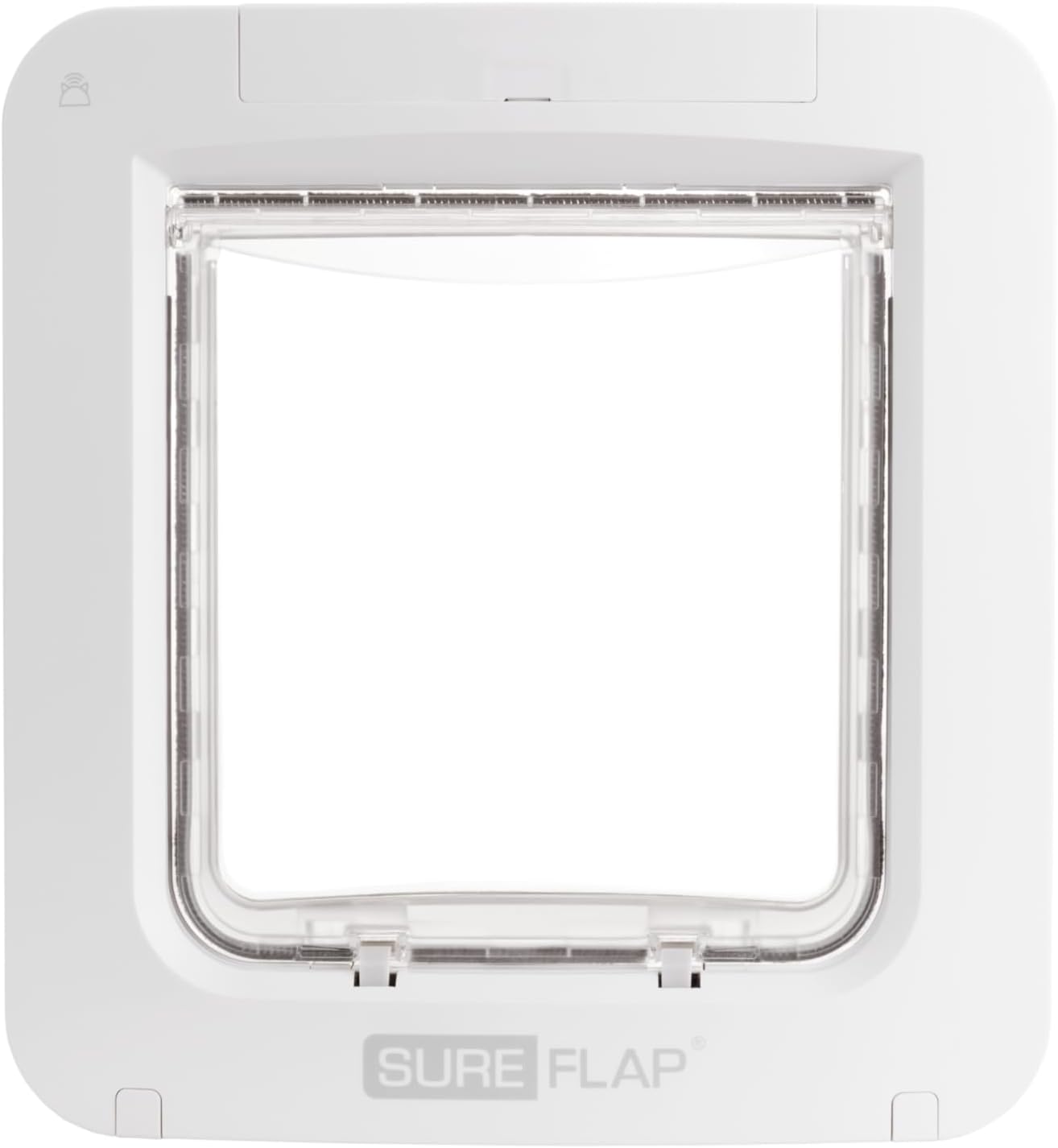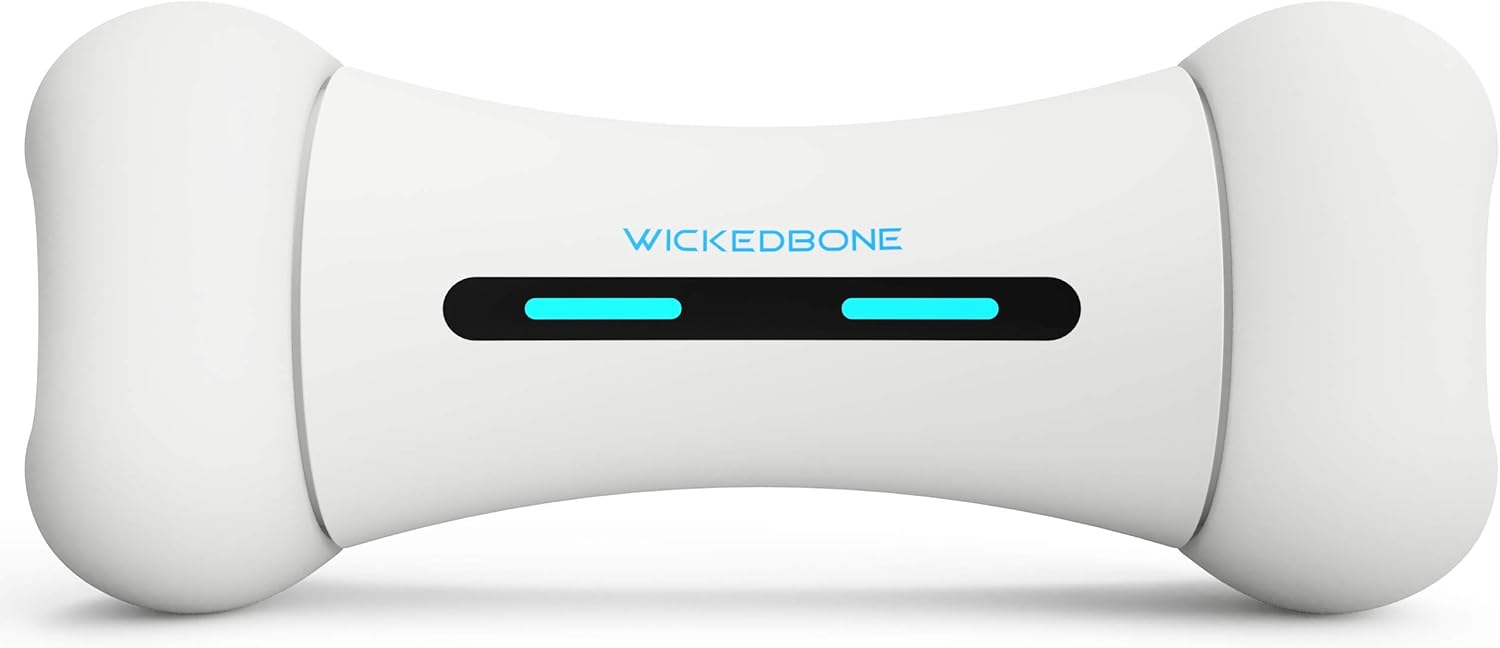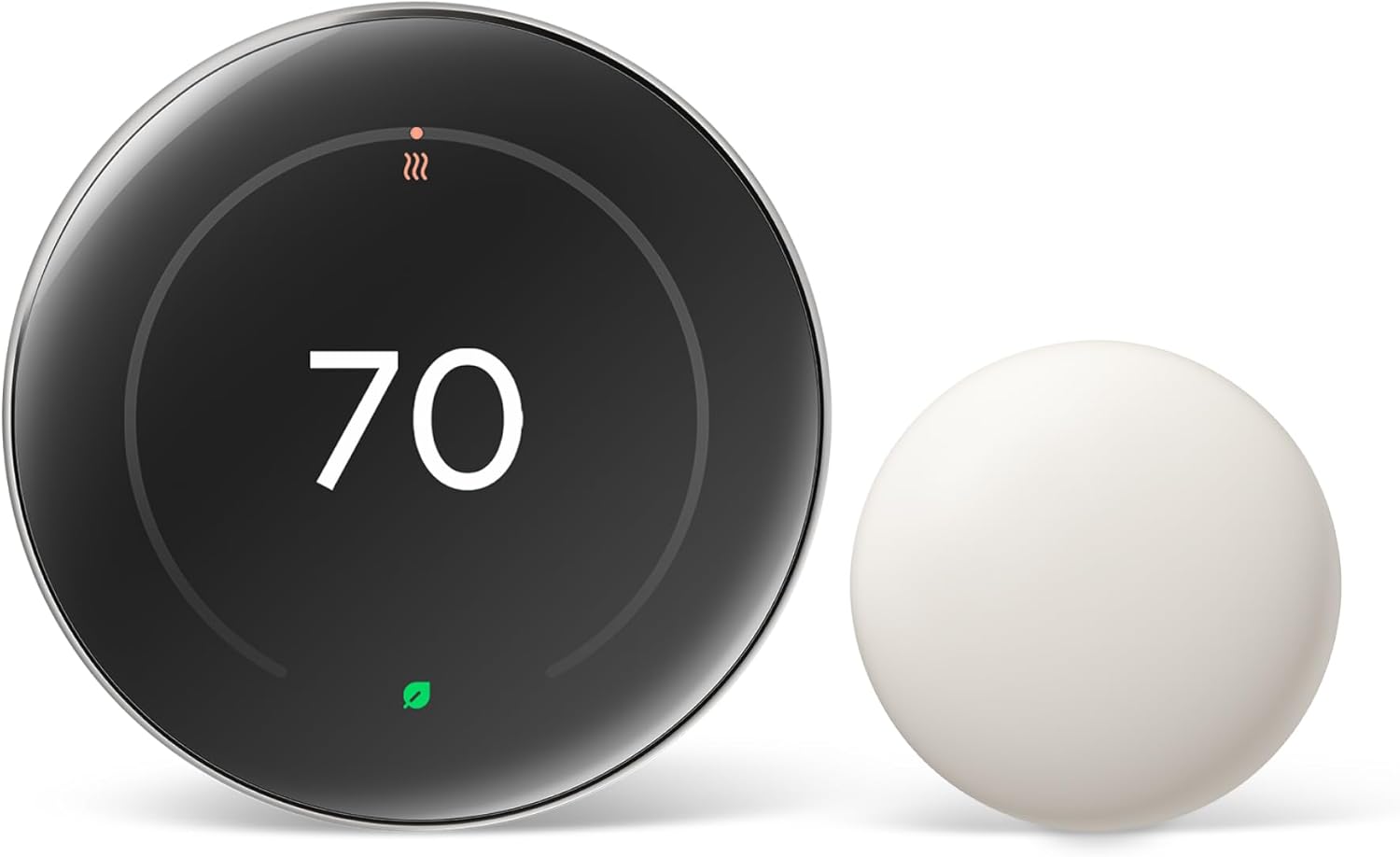How to Create a Pet-Friendly Smart Home
Smart homes used to be all about human convenience—automated lights, voice assistants, robot vacuums. But in 2025, it’s no longer just about us. Our pets are just as much a part of the family, and they deserve the same level of care, comfort, and attention. That’s where smart home technology for pets comes in.
From automatic feeders that dispense food at set times to pet cameras that let you check in (and even chat!) with your furry friend while you’re away, pet tech is evolving rapidly. As more people treat their dogs, cats, and other animals like true family members, creating a smart home for pet owners is becoming both a trend and a necessity.
In this guide, we’ll explore how to build a pet-friendly smart home that keeps tails wagging and whiskers twitching—all while making life easier and more connected for you.
Smart Pet Tech: Cameras, Feeders, Doors & More
Creating a smart home for pet owners starts with integrating the right smart pet technologies. These devices aren’t just fun gadgets—they provide peace of mind, ensure regular care, and enhance your pet’s quality of life. Let’s dive deeper into the most valuable categories of smart pet tech and explore what they offer in 2025.
📹 1. Smart Pet Cameras: Stay Connected Anytime, Anywhere
Smart pet cameras are essential tools for modern pet parents who want to stay connected with their furry companions—even when miles apart.
Key Features to Look For:
Two-way audio and HD video: Talk to your pet and hear them bark or meow back. This can reduce anxiety and offer comfort.
Wide-angle or 360° view: See the entire room with rotating cameras to track your pet’s movement.
Night vision: Essential for monitoring pets in low-light conditions or during nighttime hours.
Bark or meow alerts: Get notified when your pet is noisy or distressed.
Built-in treat dispenser: Remotely reward good behavior or just surprise them with a snack.
Popular Models (2025):
Furbo 360° Dog Camera: Offers auto-dog tracking, smart alerts, and a sleek app interface.
Petcube Bites 2 Lite: Great for multi-pet households with Alexa integration and treat tossing.
Eufy Pet Camera Pro: Affordable option with excellent HD video and real-time notifications.
Real-Life Use Case:
Imagine you’re on vacation. With a Furbo, you get a bark alert, check the app, and see your dog pacing near the door. A quick “Hey buddy, it’s okay!” through the speaker calms him down—and tossing a treat seals the deal.
🍽️ 2. Smart Pet Feeders: Consistent Nutrition on Autopilot
Automatic feeders have become smarter than ever. Gone are the days of overfeeding, messy kibble spills, or the panic of forgetting a meal.
What Smart Feeders Can Do:
Set custom feeding schedules (perfect for diabetic or senior pets).
Control portions precisely to avoid obesity or underfeeding.
Dispense meals remotely via smartphone when you’re running late.
Monitor consumption patterns—some even sync with pet health apps.
Voice messages can be recorded to call your pet during meal time.
Best Models in 2025:
PetSafe Smart Feed 2nd Gen: Wi-Fi-enabled, battery backup, works with Alexa.
WOPET SmartFeeder Pro: Offers camera monitoring alongside meal control.
Petlibro Granary: Excellent for portion control with dual power sources.
Tips for Choosing:
Ensure it supports the kibble size your pet eats.
Look for easy-to-clean designs with BPA-free materials.
If you travel frequently, prioritize models with backup power options.
🚪 3. Smart Pet Doors: Controlled Freedom for Indoor-Outdoor Pets
A smart pet door gives pets the freedom to go in and out while keeping your home secure from stray animals or unwanted intrusions.
Advanced Capabilities:
Microchip or RFID recognition: Only registered pets can use the door.
App control: Lock or unlock the door remotely.
Scheduled access: Set outdoor time windows (e.g., during daylight only).
Activity logs: Track how often your pet enters/exits.
Environmental sensing: Some doors won’t open during storms or high temperatures.
Top Picks for 2025:
SureFlap Microchip Pet Door Connect: Works with your pet’s existing microchip. Offers detailed access logs and remote control.
PlexiDor Electronic Door: Built for larger dogs, durable and secure with RFID collar keys.
Wayzn Sliding Door Opener: Turns your sliding glass door into a smart pet door—ideal for renters or patio doors.
When Smart Doors Shine:
Ideal for cats and dogs with outdoor routines.
Great for eliminating nighttime wake-up calls when your pet wants out.
Adds peace of mind when you’re away and still want your pet to have outdoor access without compromising safety.
🐾 4. Smart Pet Trackers & Wearables: Location + Health Insights
Think of these as smartwatches for pets. A smart collar or tag can tell you where your pet is, what they’re doing, and how healthy they are.
Key Features:
Real-time GPS tracking: Essential for pets who like to wander.
Geofencing: Get alerts if your pet leaves a defined safe zone.
Activity monitoring: Tracks movement, sleep, restlessness.
Health data sharing: Sync with vet apps to track long-term wellness.
Recommended Devices:
Whistle GO Explore: Offers 24/7 GPS and health tracking.
Fi Smart Collar Series 3: Long battery life and ultra-accurate tracking.
Tractive GPS Dog Tracker: Affordable with global coverage.
Best For:
Dogs who frequent parks or off-leash zones.
Escape-prone cats.
Multi-pet households that want to ensure everyone is staying active.
🧠 5. Smart Toys & Entertainment: Beat Boredom, Boost Enrichment
When left alone, pets can get bored—and that often leads to destructive behavior. Smart toys help keep them entertained, mentally stimulated, and physically active.
Types of Smart Pet Toys:
Interactive treat puzzles: Dispense treats for solving tasks.
Motion-activated toys: Move unpredictably to mimic prey.
Remote-controlled play: Use your phone to drive or direct toys.
Auto-laser games: Fun for cats that love to chase.
Pet robots: Engage pets in solo or scheduled playtime.
Best Devices in 2025:
Wickedbone: Smart bone that plays with your dog autonomously or via app.
VARRAM Pet Robot: Moves around, tosses treats, responds to pet interaction.
Cheerble Board Games for Cats: Combines a ball, scratcher, and maze.
Pro Tip:
Rotate smart toys every few days to keep playtime exciting and prevent toy fatigue.
Bonus: Other Smart Pet-Friendly Devices Worth Mentioning
Smart water fountains: Constantly circulate and filter water, encouraging hydration (e.g., Petlibro or Catit).
Pet-safe smart plugs: Control heating pads, aquariums, or fans remotely.
Smart litter boxes: Auto-cleaning systems like Litter-Robot reduce odor and maintenance.
Summary: Choosing the Right Smart Pet Tech
| Pet Need | Best Smart Device | Key Benefit |
|---|---|---|
| Anxiety Relief | Camera with audio & treat toss | Stay emotionally connected |
| Regular Meals | Automatic feeder with schedule | Never miss a feeding |
| Outdoor Access | Microchip-activated pet door | Safe independence |
| Location & Safety | GPS tracker collar | Always know where they are |
| Mental Stimulation | Smart toys & robots | Reduces boredom & bad behavior |
With the right mix of these smart pet technologies, you’re not just automating your home—you’re elevating your pet’s lifestyle to be more secure, healthy, and enriched. Combine these tools with thoughtful routines, and you’ll have a smarter, happier pet—and a whole lot more peace of mind.
Keeping Your Pets Safe While You’re Away
Whether you’re heading to work, traveling, or just out running errands, every pet owner has felt that familiar pang of guilt or concern: Is my pet okay while I’m gone? Fortunately, with the right smart home setup, you can ensure your pets stay safe, healthy, and comfortable even when you’re not physically there.
Let’s break down the smart strategies and tools that help protect your pets when you’re away from home.
📷 Real-Time Monitoring: Eyes and Ears at Home
One of the most powerful safety tools for pet owners is the smart pet camera. Not only can you check in visually, but you can also receive alerts about unusual behaviors or potential issues.
What to Look For:
Motion detection: Alerts you if your pet is overly active or unusually still.
Sound detection: Get notified if your dog is barking or your cat is yowling excessively.
Activity zones: Define areas (like a trash bin or balcony door) and get alerts if your pet enters them.
Cloud recording: Useful for reviewing past events and ensuring your pet’s behavior is normal.
Real-Life Example:
If your camera notifies you of excessive movement near the door while you’re at work, you can check the live feed, speak calmly to your pet, and call a neighbor or pet sitter if needed.
🌡️ Smart Climate Control: Keep It Comfortable
Temperature control is more than a convenience—it’s a critical safety feature, especially for pets sensitive to heat, cold, or humidity.
Ideal Smart Devices:
Smart Thermostats (e.g., Nest, Ecobee): Automatically adjust temperature based on your schedule or remote commands.
Smart AC/Heater Plugs: Turn on portable units only when your pet is in the room.
Humidity Sensors: Help maintain comfort for reptiles, amphibians, or brachycephalic (short-nosed) breeds like bulldogs.
Tips:
Set up pet-specific comfort zones. If your cat loves lounging near the window, keep that area slightly cooler in summer.
Use geofencing to automatically adjust temperature when you leave the house.
Safety Scenario:
During a hot summer day, your smart thermostat detects rising temps and kicks on the air conditioner automatically—keeping your French bulldog cool and safe from heatstroke.
🚨 Emergency Detection & Response: Prepare for the Unexpected
Emergencies happen—fires, gas leaks, power outages. Smart systems can alert you instantly and even take automated action to protect your pets.
Must-Have Devices:
Smart smoke and CO detectors (e.g., Nest Protect): Send instant alerts to your phone, even if you’re halfway around the world.
Smart security systems: Many include environmental sensors (water, gas, temperature) and pet-friendly motion detection.
Smart locks or garage door controllers: Let a trusted neighbor or pet sitter in remotely in case of emergency.
Battery backup for feeders, cameras, and HVAC controls.
Add-On Idea:
Integrate emergency contacts or pet sitters into your smart home routine. For example, if an alarm is triggered, your system can alert them automatically with instructions.
🍽️ Feeding and Hydration Backup: No Missed Meals
Pets need consistent nourishment and access to clean water—especially when you’re not home.
Smart Solutions:
Automatic feeders with schedule memory: Even during Wi-Fi outages, feeders like PetSafe retain meal times.
Dual-powered devices: Choose feeders and fountains that run on both electricity and battery.
Water level sensors: Get alerts if your pet’s fountain is running low or stops circulating.
Pro Tip:
Keep extra kibble and water in accessible containers near the device to avoid full depletion if you’re away longer than expected.
Example:
You’re stuck on a delayed flight, but your feeder dispenses your cat’s dinner right on time, and your smart camera confirms she’s munching happily.
🚪 Safe Indoor & Outdoor Access: Smart Pet Doors and Fencing
If your pet has access to the outdoors, safety becomes more complex. That’s where smart pet doors and fences come in.
Devices to Consider:
Microchip-controlled pet doors: Prevent raccoons, strays, or other intruders from entering.
App-controlled schedules: Only allow outdoor access during safe hours (e.g., daylight).
GPS fencing: Create virtual boundaries and get alerts if your pet leaves the area.
Add Extra Safety:
Set up motion-activated outdoor lights for nighttime use.
Use cameras near the pet door to monitor entries and exits.
🧠 Behavior Monitoring: Spot Issues Before They Escalate
Some smart systems now use AI to analyze pet behavior over time—helping detect health or emotional problems early.
Insights You Can Gain:
Changes in eating or drinking habits
Sleep pattern irregularities
Increased barking or restlessness
Lethargy or decreased movement
Smart Tools That Offer Behavior Tracking:
Whistle Health+ collars
Petcube Care AI services
Petlibro smart feeder analytics
This data can be invaluable when you’re discussing concerns with your vet or adjusting your pet’s care plan.
👤 Remote Interaction: Emotional Security for Pets
Many pets suffer from separation anxiety, and some simply miss the daily interaction with their favorite humans.
Tools That Help:
Two-way communication: Talk to your pet through cameras and hear their responses.
Voice-recorded feeder messages: Familiar tones help reduce anxiety at mealtimes.
Smart treat dispensers or robot toys: Reward calm behavior and stimulate interaction.
Try This Routine:
Set a daily check-in where your pet hears your voice and gets a treat. This consistency can dramatically reduce stress for animals with attachment issues.
✅ Safety Checklist for Pet Owners Leaving Home
Here’s a quick smart-home safety checklist to run before leaving your pet alone:
✅ Cameras positioned with clear views of pet areas
✅ Feeder schedules set and food levels checked
✅ Water fountain running with adequate backup
✅ Smart thermostat programmed for pet comfort
✅ Emergency alerts enabled for fire, smoke, and CO
✅ Doors/windows securely locked and monitored
✅ Activity zones set with alerts for risky areas
✅ Emergency contact assigned with remote access
Leaving your pet alone doesn’t have to be a source of worry anymore. With today’s smart home technology, you can proactively manage safety, comfort, and emotional wellbeing—even from thousands of kilometers away.
From smart feeders and temperature control to emergency response systems and pet cameras, the tools available in 2025 empower you to be a better, more connected pet parent than ever before.
All it takes is the right setup and a bit of planning—and your furry friend will be safe, happy, and cared for while you’re away.
Best Smart Devices for Pet Owners
The right smart devices can completely transform how you care for your pet—bringing more consistency, security, and joy to both your lives. Whether you’re at home or away, these carefully selected smart products can help you monitor, feed, entertain, and protect your furry companions with ease.
Here’s a closer look at some of the top smart pet devices available in 2025, each with detailed insights to help you make the right choice.
Type: Smart Pet Camera
The Furbo 360° is a widely loved interactive pet camera that lets you stay close to your pet, no matter where you are. It rotates for full room coverage and sends alerts if it detects barking, movement, or unusual behavior.
Key Features:
Full HD camera with 360° panning and night vision
AI-powered alerts for barking, pacing, and more
Treat-tossing functionality via app
Two-way audio for live interaction
Compatible with Alexa for voice control
Strengths:
Smooth video quality and a wide field of view
Keeps pets engaged with remote treat toss
Helpful for reducing anxiety in dogs
Alerts you to possible signs of stress or disturbance
Things to Consider:
Advanced features like cloud recording require a subscription
Treat mechanism works best with uniform kibble sizes
The Furbo creates an emotional connection with pets through live interaction, making it a great choice for those who want to maintain a presence in their pet’s life even when away.
Type: Automatic Feeder
This automatic feeder offers a reliable way to ensure your pet never misses a meal. It dispenses food on a fixed schedule or on-demand via a smartphone app, helping to support consistent routines and dietary needs.
Key Features:
Customizable feeding times and portions
Up to 12 meals a day with portion size control
Works with most dry kibble
App notifications for low food or dispensing issues
Battery backup ensures continued function during outages
Voice assistant support
Strengths:
Easy to set up and program for daily feeding
Helpful for weight control and structured eating habits
Sturdy design and secure food storage
Works well in multi-pet households
Things to Consider:
Only supports dry food
App could benefit from minor interface improvements
It’s a practical and stress-reducing solution for anyone managing pet feeding routines, especially when away from home or following a strict schedule.
Type: Smart Pet Door
This high-tech pet door provides secure and selective access by using your pet’s microchip or an RFID collar tag. It’s a fantastic way to allow your pets to move freely while keeping other animals out.
Key Features:
Microchip or RFID recognition
Remote lock/unlock via app
Timed access and curfews
Activity tracking through the Sure Petcare app
Battery-powered with long-lasting performance
Works with additional hub for smart features
Strengths:
Prevents entry of unknown animals
Gives you control over your pet’s indoor/outdoor schedule
Logs your pet’s comings and goings
Easy to install in doors or windows
Things to Consider:
Hub is required for full app functionality
May not be suitable for large dogs
For pets with outdoor privileges, this smart door offers freedom and security, allowing you to manage access from anywhere and gain insight into their habits.
Type: Smart Pet Collar / GPS Tracker
This compact, durable tracker combines GPS location with health and fitness monitoring, making it a powerful tool for managing your pet’s safety and wellbeing.
Key Features:
Real-time GPS tracking with escape alerts
Customizable virtual fences and safe zones
Activity and sleep monitoring
Health trend analysis with vet syncing
Water-resistant and rugged build
Long battery life with USB charging
Strengths:
Offers precise location data in real time
Helps detect early signs of illness or unusual behavior
Monitors overall health and exercise levels
Provides valuable data during vet visits
Things to Consider:
Monthly subscription required for full GPS features
May be too bulky for very small pets
Great for pets that spend time outdoors or for owners who want to track both movement and health patterns over time.
Type: Interactive Smart Toy
This intelligent robotic toy keeps pets mentally and physically stimulated while you’re away. It moves automatically or via app control and dispenses treats during play sessions.
Key Features:
App-controlled play scheduling
Automatic obstacle avoidance
Treat-dispensing feature
Multiple play modes and speed settings
Durable and pet-safe materials
Rechargeable battery
Strengths:
Encourages healthy activity and reduces boredom
Prevents destructive behavior through engagement
Great for solo play and stimulation
Works well for both dogs and cats
Things to Consider:
Moves best on flat, hard floors
Learning curve during initial setup
This device offers an excellent outlet for pets with extra energy and helps create a more enriched, fun environment when left alone.
Type: Smart Thermostat
Although it’s not made specifically for pets, the Nest thermostat plays a vital role in maintaining a comfortable and safe environment for animals by automatically adjusting the temperature of your home.
Key Features:
Learns daily routines and adjusts heating/cooling
Remote temperature control via app
Room sensors for more accurate climate zones
Energy-saving features
Works with Google Assistant and Alexa
Sends alerts for unusual temperature changes
Strengths:
Keeps indoor climate ideal during extreme weather
Helps pets stay cool in summer and warm in winter
Can be adjusted manually or automatically
Alerts help prevent overheating or cold stress
Things to Consider:
Installation may be more complex in older systems
Not pet-specific, but easily adapted to pet needs
Keeping a consistent temperature is crucial for pets, especially those with health conditions or temperature sensitivities, and this thermostat helps ensure year-round comfort.
Summary Table
| Device | Category | Key Strength |
|---|---|---|
| Furbo 360° Camera | Pet Monitoring | Live view, treat toss, AI alerts |
| PetSafe Smart Feed | Feeding | Custom schedules, portion control |
| SureFlap Pet Door | Access Control | Microchip-based selective entry |
| Whistle GO Explore | GPS & Health | Real-time tracking + wellness data |
| VARRAM Robot | Entertainment | Interactive play + treat rewards |
| Nest Thermostat | Climate Control | Automated comfort + temperature alerts |
These devices form the foundation of a smart home that supports the unique needs of pets. With each tool working in harmony—through apps, routines, or smart assistants—you can create an environment where your pet thrives even when you’re not around.
Integration Tips: Syncing Pet Tech with Your Smart Home Hub
Once you’ve invested in smart pet devices like cameras, feeders, doors, and trackers, the next step is integrating them into your smart home ecosystem for seamless automation and centralized control. A well-integrated setup enhances efficiency, improves response time in emergencies, and makes caring for your pet almost effortless.
🧠 Choose a Central Smart Home Hub
Before diving into automation, you’ll need a central platform or hub to manage all devices. Most smart pet gadgets today support major ecosystems like:
Amazon Alexa
Google Home
Apple HomeKit
Samsung SmartThings
IFTTT (If This Then That) for advanced automation
How to Choose:
Go with the ecosystem you’re already using for lights, thermostats, or security.
Check device compatibility before purchasing (most brands list supported platforms).
If using multiple ecosystems, consider a bridging platform like Home Assistant or SmartThings.
📱 Consolidate Device Control in One App
Having ten different apps for ten smart devices quickly becomes overwhelming. By syncing devices with your smart hub, you can control everything from one interface or dashboard—whether it’s a smartphone, tablet, or voice assistant.
Example:
Open your Alexa app and control the smart feeder, view your pet camera, and adjust the thermostat—all from the same screen.
🔄 Automate Pet Routines with Smart Scenes & Schedules
Smart home hubs allow you to create routines (or scenes)—automated sequences triggered by time, sensor input, or events.
Popular Pet-Focused Automation Ideas:
“Morning Routine”
Unlock the smart pet door
Turn on the water fountain
Dispense breakfast from the automatic feeder
Adjust lights to daylight mode
“Away Mode”
Lock the pet door
Turn on pet camera
Start climate control for pet comfort
Enable barking or motion alerts
“Evening Routine”
Feed dinner
Play a message to call your pet to their bed
Dim the lights gradually
Lock all smart doors
You can program these with Alexa Routines, Google Home Automations, or Apple Shortcuts, depending on your ecosystem.
🗣️ Use Voice Commands to Simplify Pet Care
One of the biggest perks of smart home integration is hands-free control. Voice assistants like Alexa, Google Assistant, or Siri can help manage your pet devices with simple commands.
Useful Voice Commands:
“Alexa, feed the dog.”
“Hey Google, show me the pet camera.”
“Siri, turn on the water fountain.”
“Alexa, lock the cat door.”
“Hey Google, play with the pet robot.”
Make sure your smart pet device is linked to your assistant’s app and named clearly, like “Luna’s Feeder” or “Backyard Dog Cam,” for accurate recognition.
🔗 Leverage IFTTT for Advanced Automation
IFTTT (If This Then That) is a powerful tool for connecting services that don’t natively integrate. You can use it to trigger one device based on the activity of another—even from different brands.
Creative IFTTT Applets:
If the pet leaves the geofenced area, then send a push alert
If barking is detected, then turn on calming music
If feeder dispenses food, then turn on the nearby light for visibility
If temperature exceeds 28°C, then activate AC or fan
IFTTT helps bridge the gap between devices, especially when using lesser-known pet gadgets that may not directly support major hubs.
🧪 Test Automation Carefully
Before relying on automations fully, test each routine and trigger to ensure it performs as expected. Watch how your pet responds and tweak the setup if needed.
Tips:
Run routines in test mode while you’re home.
Observe how quickly commands execute.
Keep an eye on pet reactions—some may be startled by a feeder noise or auto-play toy.
Double-check time zone settings for feeding and access routines.
🛡️ Prioritize Security and Privacy
Smart pet devices often include cameras and microphones. It’s important to ensure:
Devices use encrypted connections
Firmware is kept up to date
Default passwords are changed
Permissions are limited to trusted users
If your smart home platform allows guest profiles (like Google Home or Alexa Household), use them to limit access for sitters or family members without giving full control of your home.
🐾 Combine Pet Tech with General Smart Devices for Better Results
Your pet’s well-being doesn’t rely only on pet-specific gadgets. Combine them with general-purpose smart devices for an enhanced experience.
Smart Synergy Examples:
Smart lights + pet camera: Light turns on when motion is detected by the pet.
Thermostat + GPS collar: Auto-adjust indoor temperature when your pet enters the home.
Motion sensor + camera: Trigger video recording when your pet moves into a room they shouldn’t be in.
Doorbell camera + pet activity log: Get notified if your dog barks when someone rings the bell.
These connections add deeper context to your pet’s behavior and improve home automation overall.
By syncing your smart pet devices with your smart home hub, you centralize control, automate routines, improve responsiveness, and reduce the chance of forgetting something important. Whether it’s feeding schedules, environmental control, or behavior alerts, integrated systems do the heavy lifting so you can focus on loving and enjoying life with your pet.


